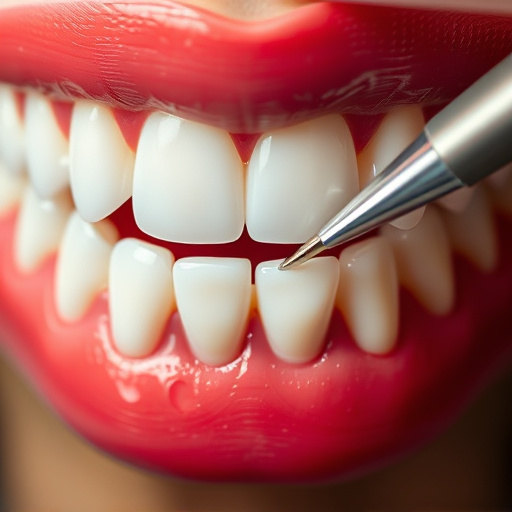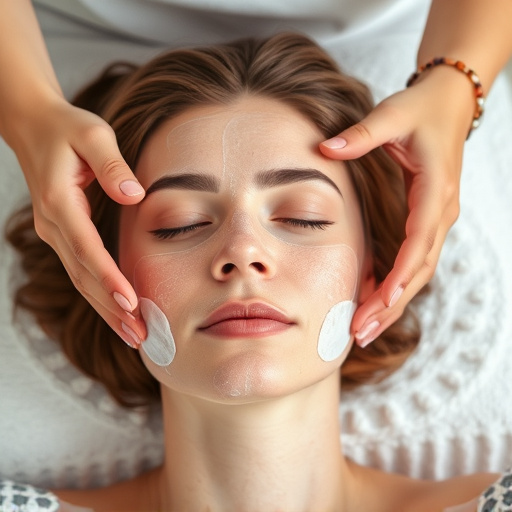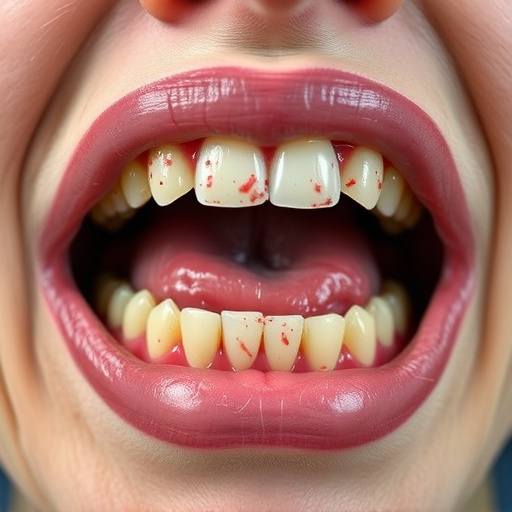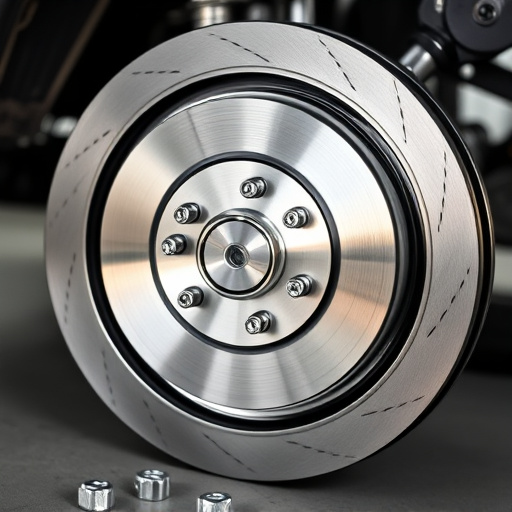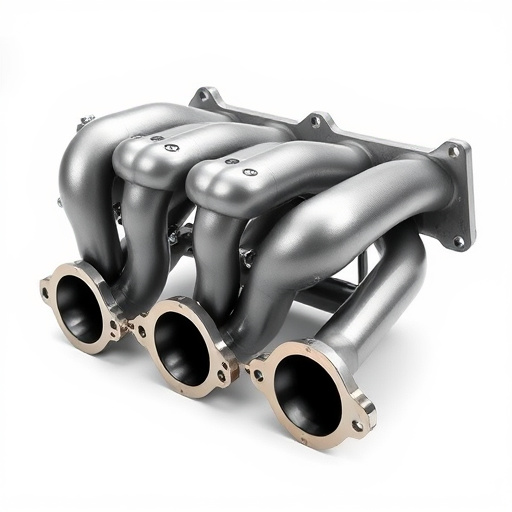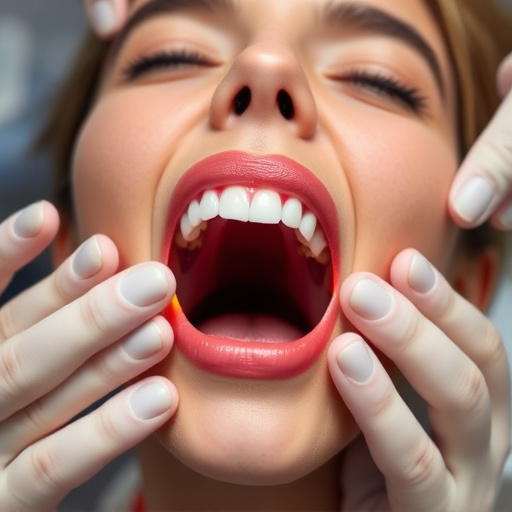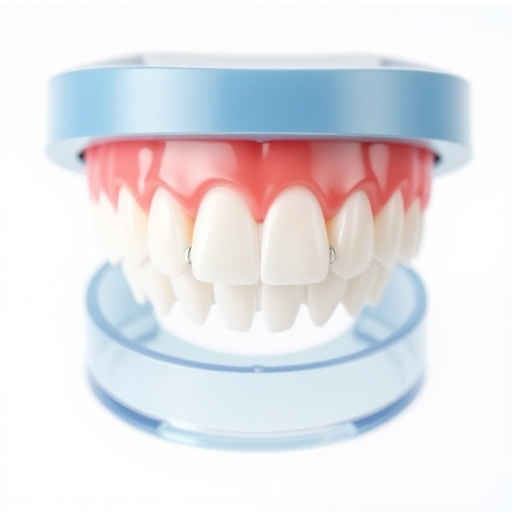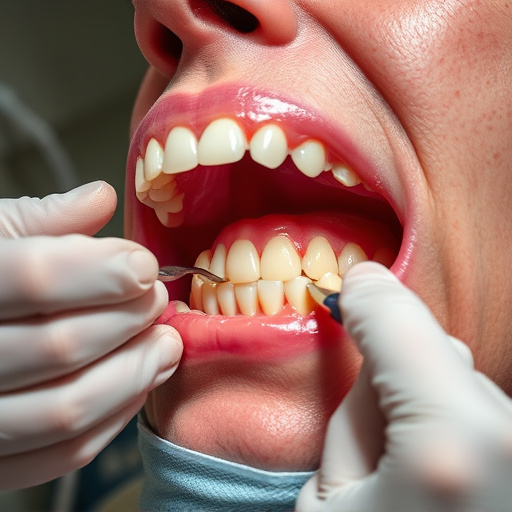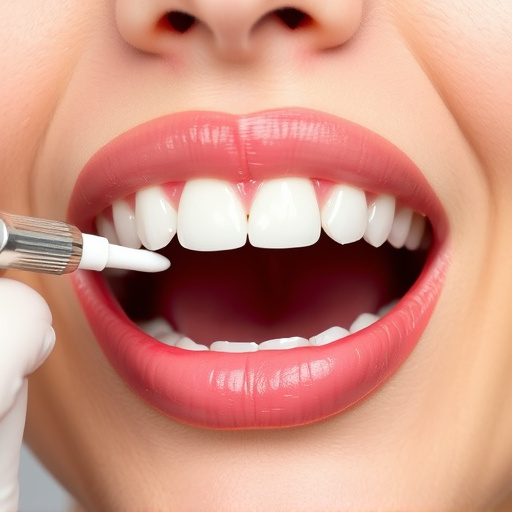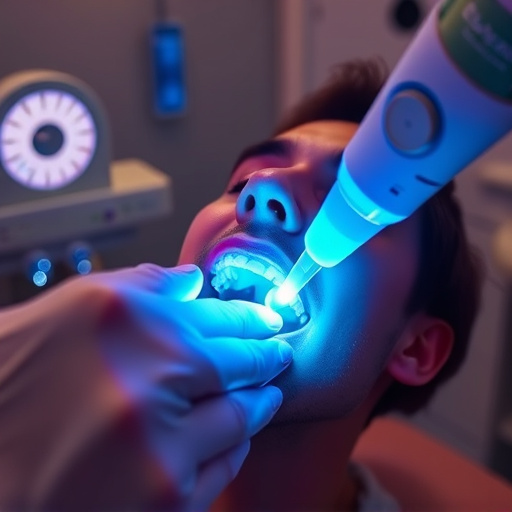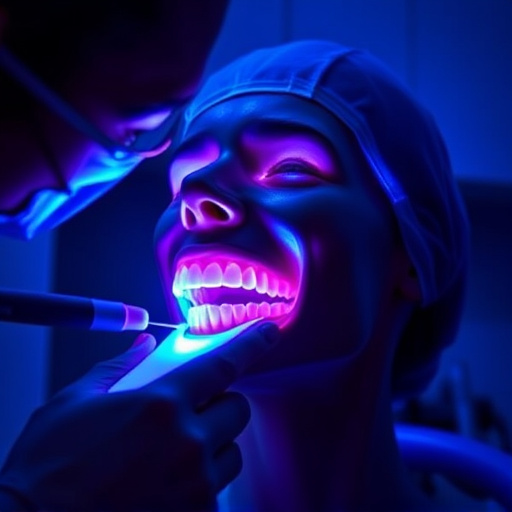Sleep apnea, characterized by disrupted breathing during sleep, requires professional diagnosis through evaluations and tests. Treatment options range from lifestyle modifications like weight loss and schedule adjustments to advanced therapies like CPAP machines and oral appliances. Early intervention with the guidance of healthcare professionals significantly improves sleep quality and overall well-being. Tailored interventions address severity and type, ensuring effective treatment choices. Dental care complements these solutions, offering cosmetic dentistry for enhanced confidence.
Diagnosing sleep apnea is a critical first step towards improving overall health and quality of life. This article delves into the process of understanding sleep apnea, its symptoms, and the crucial role diagnosis plays in guiding effective treatment choices. We explore how accurate identification of this condition leads to tailored therapies, from continuous positive airway pressure (CPAP) machines to oral appliances and surgical interventions. By examining these options, individuals can find the best sleep apnea treatment for their needs.
- Understanding Sleep Apnea: Symptoms and Diagnosis
- The Impact of Accurate Diagnosis on Treatment Choices
- Exploring Effective Treatment Options for Sleep Apnea
Understanding Sleep Apnea: Symptoms and Diagnosis
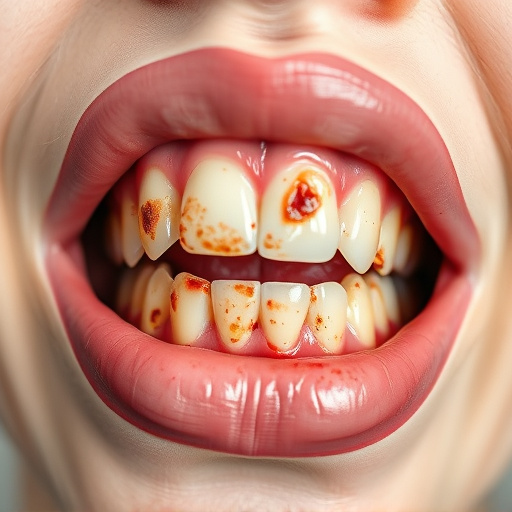
Sleep apnea is a common yet often undiagnosed sleep disorder that affects millions worldwide. It occurs when the airway becomes blocked or narrowed during sleep, leading to intermittent pauses in breathing. These episodes can last for several seconds to minutes and may occur hundreds of times each night, disrupting the quality of sleep. Understanding sleep apnea involves recognizing its subtle symptoms, which include excessive daytime sleepiness, frequent awakenings at night, loud snoring, and sudden episodes of stopping breathing during sleep.
Diagnosing sleep apnea typically begins with a comprehensive evaluation by a healthcare professional or a specialist in sleep medicine. This process may involve a detailed medical history, physical examination, and specific diagnostic tests such as polysomnography (a study that monitors brain activity, eye movements, heart rate, and oxygen levels during sleep) or home-based testing devices. Early diagnosis is crucial for effective management of sleep apnea, which can range from lifestyle changes to advanced therapies like continuous positive airway pressure (CPAP) machines, oral appliances, or even surgical interventions. Prompt attention to symptoms and seeking professional guidance can significantly improve sleep quality and overall well-being, ensuring a healthier and more productive life despite the condition.
The Impact of Accurate Diagnosis on Treatment Choices
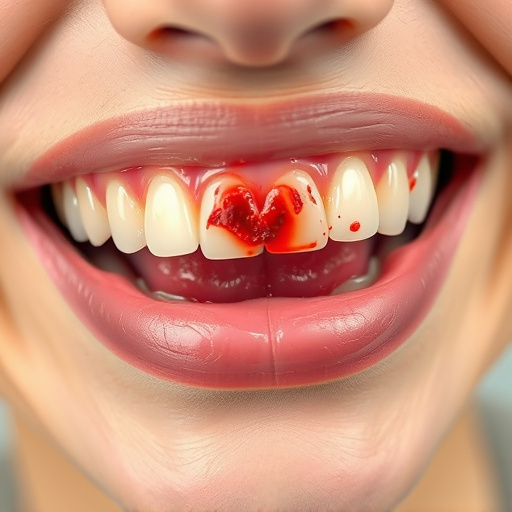
An accurate diagnosis of sleep apnea is a game-changer when it comes to effective treatment choices. It allows healthcare professionals to tailor interventions that directly address the severity and specific type of the condition, whether it’s obstructive or central sleep apnea. Without this crucial step, treatments might be ineffective or even unnecessary, leading to wasted time and resources.
By accurately diagnosing sleep apnea, dentists and medical specialists can recommend appropriate strategies ranging from lifestyle changes like weight management and position switching during sleep to continuous positive airway pressure (CPAP) therapy for severe cases. Regular oral exams also play a vital role in monitoring progress and adjusting treatments as needed, while emergency dental care can be crucial for addressing any unforeseen complications related to the condition or its treatment.
Exploring Effective Treatment Options for Sleep Apnea
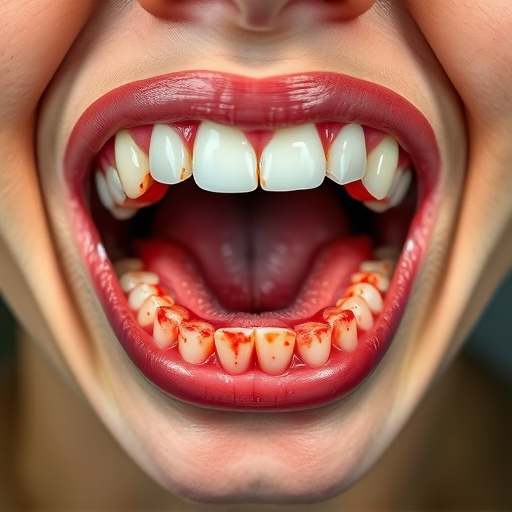
Exploring Effective Treatment Options for Sleep Apnea
Diagnosing sleep apnea is a significant step towards improving overall health and quality of life. Once diagnosed, a variety of treatment choices are available to address this condition. The key lies in finding solutions that not only alleviate symptoms but also cater to individual needs and preferences. Standard treatments include continuous positive airway pressure (CPAP) therapy, which uses a machine to keep the airways open during sleep. Oral appliances, such as clear aligners or custom-fitted mouthpieces, are another popular option, offering a more discreet alternative to CPAP. These devices gently reposition the jaw to prevent the blockage of airways.
For those seeking non-invasive solutions, behavioral changes and lifestyle modifications play a crucial role in managing sleep apnea. Losing weight, avoiding alcohol and sedatives before bedtime, and maintaining a consistent sleep schedule can significantly reduce symptoms. Moreover, certain dental procedures like tooth repair or gum treatments might be recommended to address anatomical issues contributing to the condition. Cosmetic dentistry, while not directly related to treating sleep apnea, can enhance overall oral aesthetics, providing patients with increased confidence alongside their improved breathing during sleep.
Diagnosing sleep apnea accurately is a game-changer in managing this condition. By understanding symptoms and utilizing effective diagnostic methods, healthcare providers can offer tailored treatment options. From continuous positive airway pressure (CPAP) therapy to oral appliances and surgical interventions, the choices cater to individual needs. Accurate diagnosis not only ensures optimal sleep apnea treatment but also improves overall quality of life for those affected.
